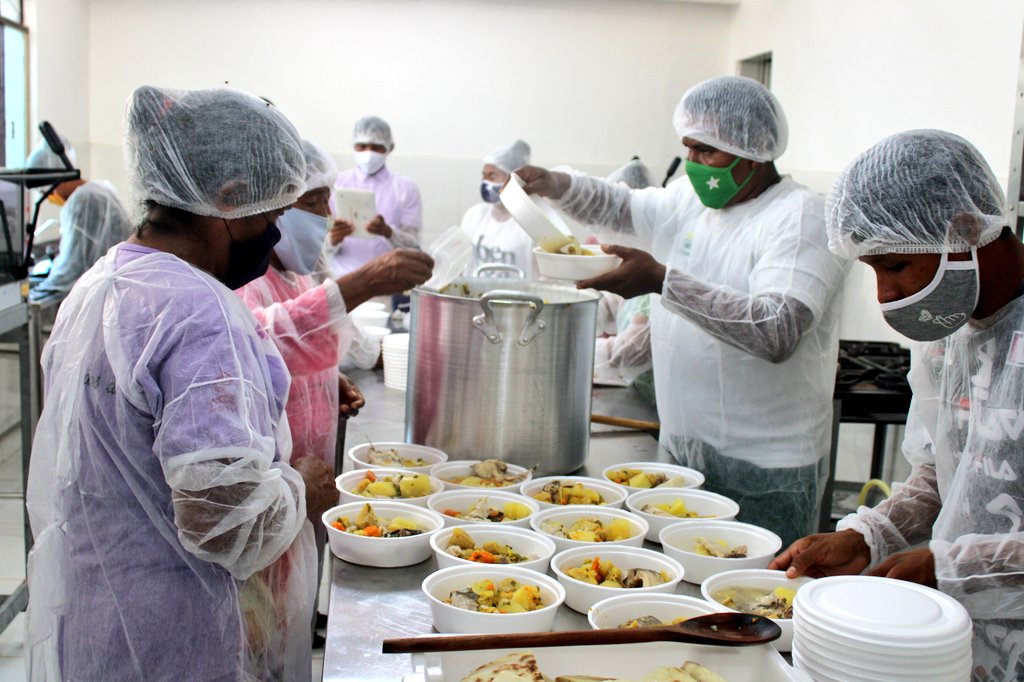September 29th is the International Day of Awareness of Food Loss and Waste, a date established by the United Nations with the aim of raising awareness throughout society about the importance of this issue and advancing the fulfillment of Sustainable Development Goal (SDG) 12, to ensure fair and sustainable patterns of food consumption and production.
The Food Waste Index, carried out by the United Nations Environment Programme (UNEP), estimates that 931 million tons of food worldwide, or 17% of the total food available to consumers, end up in the trash, with 61% of this waste occurring in households, 26% in restaurants and other food services, and 13% in retail outlets such as supermarkets.
This is a startling paradox in a world where, according to the UN report, “The State of Food Security and Nutrition in the World” (SOFI), released in July 2023, 735 million people are experiencing hunger or alarming levels of food insecurity.
In Brazil, research conducted by the Brazilian Network for Research on Food Sovereignty and Food Security (Rede Penssan) found that more than 125 million Brazilians do not have three meals a day, and 33 million suffer from hunger, while over 27 million tons of food are wasted annually.

The Fraternity – International Humanitarian Missions (FIHM) undertakes various initiatives and actions to mitigate the impact of food insecurity among the groups it assists in Angola, Brazil and Portugal.
Since its foundation, FIHM has promoted an ideal of food based on simplicity, adaptability to local production, and holistic health, with initiatives guided by sustainable practices and interaction with nature.
Throughout its years of operation, FIHM has conducted studies and implemented self-sustainability practices aimed at improving procedures necessary for the generation of products that meet the needs of the most vulnerable populations, as well as the cultivation of horticultural products that can be adapted to different contexts of social and humanitarian crises.
These activities fall within the scope of actions directly related to Food Security, specifically under Standard 3, as provided for in the Sphere Humanitarian Standards.
Harvesting Surplus Fruits and Vegetables

Humanitarian actors from the Fraternity – Humanitarian Missions (FIHM) carry out actions in Portugal as part of the Nutrition and Food Security Project, expanding their network of contacts with producers to harvest surplus production that would often go to waste. Food waste generally occurs due to an excess of fruit and vegetable production that is not sold and cannot be distributed through other channels, resulting in losses in the fields.
Donations are transformed into products such as jams and dehydrated goods, contributing both to the self-sustainability of the Mission in Europe and to the development of distribution models for humanitarian missions conducted by the Fraternity – Humanitarian Missions (FIHM) in other regions of the planet.
Multimixture Flour


Multimixture flour is a dietary supplement for children, young people, and the elderly in vulnerable situations, utilizing regionally available food resources in their entirety.
Multimixture flour enriches the usual diet with various minerals, vitamins, and fibers and is composed of roasted bran (rice, wheat, and corn), powdered dark green leaves (cassava, pumpkin, sweet potato, or moringa), and crushed seeds (sesame, pumpkin, watermelon, sunflower, or peanuts).
This dietary supplement is a valuable tool in these times when hunger and malnutrition are major contributors to the death and weakened health of a significant portion of the world’s population, as a result of poverty, social inequality, armed conflicts, and climate crises.
Food Dehydration

Food dehydration is a valuable way to preserve fruits and vegetables, making use of seasonal natural resources and extending their shelf life. It involves removing a significant amount of water from vegetables, concentrating their nutritional calories, benefits, and physical properties such as color and flavor, while ensuring better preservation of their nutrients, minerals, and vitamins.
Mother Teresa, a humanitarian member of the Fraternity – Humanitarian Missions (FIHM), highlights the importance of knowing the food dehydration technique “in a society where food waste is a challenge to be overcome.”
Call to Action
Today is an opportunity to consider mechanisms for preventing food loss and waste worldwide. It is a call for the public and private sectors, science, and individuals to develop fairer, more collaborative, and sustainable actions for food consumption and disposal.
Learn more about the activities developed by the Fraternity – Humanitarian Missions (FIHM) in the field of Food Security and Nutrition:





